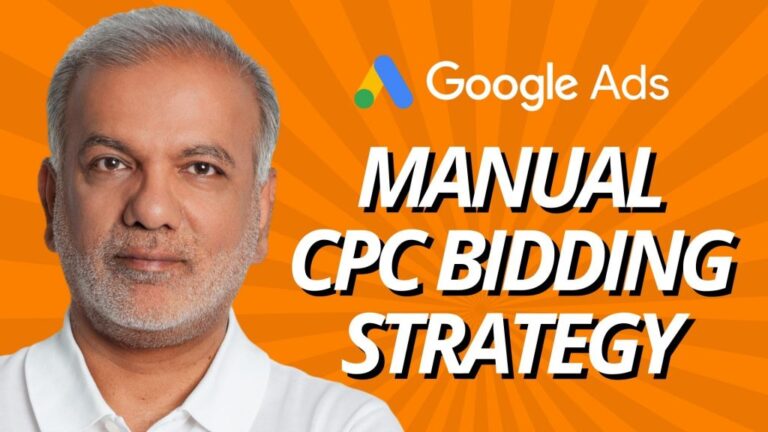Personal finance is a crucial aspect of our lives that can have a significant impact on our overall well-being. It involves managing our money, making informed financial decisions, and planning for the future. When we have a good understanding of personal finance, we can achieve financial stability, reduce stress, and work towards our long-term goals.
Understanding the difference between assets and liabilities
Assets are things that have value and can be owned or controlled by an individual or entity. They can include cash, investments, real estate, vehicles, and other valuable possessions. On the other hand, liabilities are debts or obligations that an individual or entity owes to others. This can include credit card debt, student loans, mortgages, and other forms of debt.
It is important to know the difference between assets and liabilities because it helps us make better financial decisions. By understanding what assets and liabilities are, we can prioritize our spending and focus on acquiring assets that will increase our net worth over time. For example, instead of buying a new car that will depreciate in value, we can invest in real estate or stocks that have the potential to appreciate.
Building a strong financial foundation
Having a budget is essential for building a strong financial foundation. A budget helps us track our income and expenses, allowing us to see where our money is going and make adjustments as needed. To create a budget, start by listing all sources of income and then categorize your expenses into fixed (such as rent or mortgage payments) and variable (such as groceries or entertainment). Allocate a certain amount of money for each category and stick to it.
To stick to a budget, it is important to prioritize your spending and avoid unnecessary expenses. This may involve making sacrifices in the short term to achieve long-term financial goals. It can be helpful to set specific financial goals and remind yourself of them regularly. Additionally, finding ways to save money, such as cutting back on dining out or finding cheaper alternatives, can help you stay within your budget.
Creating passive income streams
| Passive Income Stream | Description | Potential Earnings |
|---|---|---|
| Investing in Stocks | Purchasing stocks and holding onto them for long-term growth and dividends. | Varies depending on the stock and market conditions. |
| Rental Properties | Purchasing a property and renting it out to tenants for monthly income. | Varies depending on the location and rental rates. |
| Dividend Stocks | Investing in stocks that pay regular dividends to shareholders. | Varies depending on the stock and market conditions. |
| Creating Digital Products | Creating and selling digital products such as ebooks, courses, and software. | Varies depending on the product and marketing strategy. |
| Peer-to-Peer Lending | Lending money to individuals or businesses through online platforms. | Varies depending on the interest rates and borrower creditworthiness. |
Passive income is money earned with little to no effort on your part. It is generated from assets that you own, such as rental properties, stocks, or businesses. Creating passive income streams is important because it allows you to earn money even when you are not actively working. This can provide financial security and freedom.
There are various ways to create passive income. One option is to invest in real estate and rent out properties. This can provide a steady stream of rental income. Another option is to invest in dividend-paying stocks or bonds, which can provide regular income through dividends or interest payments. Additionally, starting a side business or creating digital products can generate passive income.
Developing a mindset of abundance
A mindset of abundance is the belief that there is enough for everyone and that opportunities are limitless. It involves having a positive outlook on life and being open to possibilities. Developing a mindset of abundance is important because it can help us overcome limiting beliefs and take advantage of opportunities.
Having a mindset of abundance has many benefits. It allows us to see opportunities where others may see obstacles. It helps us stay positive and motivated, even in challenging times. It also encourages us to take risks and step out of our comfort zones, which can lead to personal and financial growth.
To develop a mindset of abundance, it is important to practice gratitude and focus on the positive aspects of your life. Surround yourself with positive people who support your goals and aspirations. Challenge your limiting beliefs and replace them with empowering thoughts. Finally, take action towards your goals and believe in your ability to achieve them.
Taking calculated risks

Taking risks is an important part of personal finance because it can lead to greater rewards and opportunities. However, it is important to take calculated risks rather than reckless ones. Calculated risks involve assessing the potential rewards and potential losses before making a decision.
One example of a calculated risk is starting a business. Before starting a business, it is important to conduct market research, assess the competition, and create a solid business plan. This helps minimize the risks and increases the chances of success. Another example is investing in stocks. Before investing, it is important to research the company, analyze its financials, and consider the potential risks and rewards.
Investing in assets that appreciate in value
Investing is an important aspect of personal finance because it allows us to grow our wealth over time. Investing in assets that appreciate in value is particularly beneficial because it can lead to significant returns on investment.
Assets that appreciate in value are those that increase in worth over time. This can include real estate, stocks, bonds, and other investments. For example, investing in real estate can provide both rental income and potential appreciation in property value. Similarly, investing in stocks of companies with strong growth potential can lead to significant capital gains.
Avoiding debt traps
Debt can be a major obstacle to achieving financial stability and freedom. It can lead to high interest payments, stress, and limited financial options. Avoiding debt traps is crucial for maintaining a healthy financial life.
To avoid debt traps, it is important to live within your means and avoid unnecessary borrowing. This involves creating a budget and sticking to it, prioritizing your spending, and avoiding impulse purchases. It is also important to pay off high-interest debt as quickly as possible. This may involve making extra payments or consolidating debt into lower-interest options.
Learning to negotiate effectively
Negotiation is an important skill that can help us save money, increase our income, and achieve better financial outcomes. Learning to negotiate effectively is crucial for personal finance success.
To negotiate effectively, it is important to do your research and gather information before entering into negotiations. Understand the value of what you are negotiating for and be prepared to make concessions if necessary. Practice active listening and try to understand the other party’s perspective. Finally, be confident and assertive in your negotiations.
Surrounding yourself with like-minded individuals
Surrounding yourself with like-minded individuals is important for personal finance success because it can provide support, motivation, and new perspectives. Like-minded individuals can share similar goals and values, making it easier to stay focused on your financial journey.
To find like-minded individuals, consider joining local or online communities focused on personal finance or financial independence. Attend networking events or conferences related to personal finance. Engage in discussions and share your experiences and goals. Building a network of like-minded individuals can provide valuable insights, accountability, and support.
Continuously educating yourself about personal finance
Continuous education is crucial for personal finance success because it allows us to stay informed about the latest trends, strategies, and opportunities. By continuously educating ourselves, we can make better financial decisions and adapt to changing circumstances.
To educate yourself about personal finance, consider reading books, attending seminars or workshops, listening to podcasts or audiobooks, and following reputable financial blogs or websites. It is also helpful to seek advice from financial professionals or mentors who have expertise in personal finance.
In conclusion, personal finance plays a vital role in our lives and can have a significant impact on our overall well-being. Understanding the difference between assets and liabilities, building a strong financial foundation, creating passive income streams, developing a mindset of abundance, taking calculated risks, investing in assets that appreciate in value, avoiding debt traps, learning to negotiate effectively, surrounding yourself with like-minded individuals, and continuously educating yourself about personal finance are all important aspects of achieving financial success. By taking action and implementing these strategies into our lives, we can improve our personal finance skills and work towards a more secure and prosperous future.
FAQs
What is the book “Rich Dad, Poor Dad” about?
The book “Rich Dad, Poor Dad” is a personal finance book written by Robert Kiyosaki. It discusses the author’s two “dads” – his biological father (poor dad) and his best friend’s father (rich dad) – and the different financial lessons he learned from each of them.
What are the 10 steps discussed in “Rich Dad, Poor Dad”?
The 10 steps discussed in “Rich Dad, Poor Dad” are: 1) Mind your own business, 2) Control your cash flow, 3) Know the difference between assets and liabilities, 4) Buy assets, not liabilities, 5) Seek out mentors, 6) Learn to manage risk, 7) Learn to negotiate, 8) Learn to sell, 9) Build a team, and 10) Give back to society.
What does it mean to “mind your own business”?
“Minding your own business” means focusing on building your own assets and income streams, rather than relying solely on a job or someone else’s business. It involves taking control of your financial future and making smart investments.
What is the difference between assets and liabilities?
Assets are things that put money in your pocket, such as rental properties or stocks. Liabilities are things that take money out of your pocket, such as car payments or credit card debt.
Why is it important to seek out mentors?
Seeking out mentors can help you learn from someone who has already achieved success in your desired field. They can provide guidance, advice, and support as you work towards your own goals.
What does it mean to “build a team”?
Building a team involves surrounding yourself with people who can help you achieve your goals. This can include financial advisors, lawyers, accountants, and other professionals who can provide expertise and support. It can also involve building a team of employees or partners to help you run your own business.
Why is it important to give back to society?
Giving back to society can help you feel fulfilled and make a positive impact on the world. It can also help you build a positive reputation and network with others who share your values.





